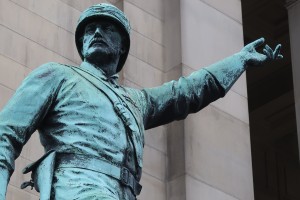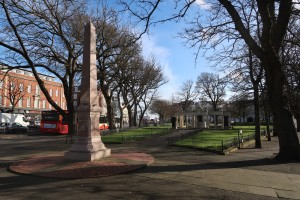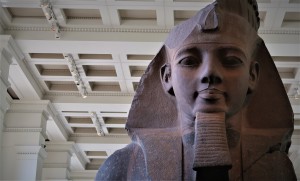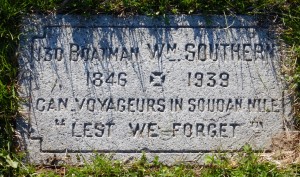There are Places that Captivate Us

Statue of Major General William Earle, commander of Her Majesty’s Troops, Nile Campaign. Killed at Kirbekan, 1885. (P. Ferguson image, St. George’s Hall, Liverpool, March 2017)
The Nile Campaign 1884 – 1885
As we walk from Liverpool train station the blue-green figure of an officer on a stone plinth attracts us. Together we walk across the roadway and stand before Major General George Earle CB, CSI. Upon the plaque KIRBEKAN stands out from the text and my mind, for I have not been, drifts to this place…Kirbekan…the Nile…the Sudan….Khartoum…Abu Klea…Egypt – to Tommy Atkins, camels, pyramids and boatmen.
The Nile Campaign 1884-85 was one of Queen Victoria’s “little wars” when a force was assembled to relieve General Gordon at Khartoum. Learning of these place and times I turn, through my mind, the many pages read and images I have seen. In the foraging of my past, a semester at University returns to me….time well spent learning of Ancient Egypt, images of this land, its people photographed by our family’s Sergeant, visits to the British Museum to see this collected “ancientania”, and of Victoria’s soldiers who saw these places in the lit heat of day, the dark cool of night. A previous visit to the National Army Museum (Chelsea) whose exhibition “soldier as collector” featured the assembled bric-a-brac of Tommy Atkins on campaign for Queen, King and Country. I speak of these memories (and I return to thoughts about echoes) as one thing leads to another, connections (mortar) the ties that bind, the togetherness of things. Liverpool – Egypt and elsewhere will all connect over the next little while.
Egypt was a constant on this trip…
On the Victoria Embankment – Cleopatra’s Needle, in the Victoria Embankment Gardens – the Great War Imperial Camel Corps Memorial. So too I return to the British Museum to find images of Egypt that will allow me to present the visit of Chilliwack soldier Malcolm MacLeod who stood in this same spot and wrote “they have everything imaginable, ancient Egyptian mummies, pottery statues, jewelery [sic], etc.” (Chilliwack Progress, December 17, 1914, page 1).
And days after Liverpool, Rosemary and I, return to Brighton to visit another fascination, the Brighton Pavilion, and on our walk towards the pier, in Old Steine Gardens, we encounter the 1888 obelisk – the Egyptian War Memorial (1882-1885) dedicated to the Royal Sussex Regiment…EGYPT…ABU KLEA. Our encounters with Egypt lead to discussions on the train to London Victoria. Two chance encounters with the echoes of the past – the togetherness of things. Yet the words do not come – to place these contexts (these bricks) until a new journey where the mortar is found…at home in British Columbia.

Egypt War Memorial (1882 – 1885) to the Royal Sussex Regiment. Old Steine Gardens, Brighton, (P. Ferguson image, March 2017)
The warmth of the day is lovely, and our fellow wanderers this day have included a marmot, magpies and the ever curious crows. In search of stories of the Great War it is while walking the markers of Pleasant Cemetery, Kamloops that I find a story of the Sudan (Soudan). “Lest We Forget” William Southern a boatman of Canada’s first expeditionary force – an 1884-85 Nile voyageur, one of nearly 400 Canadians assembled, and whose boat skills were to take the British Expeditionary force to relieve Gordon at Khartoum. It is extraordinary and in seconds I see again Liverpool’s General Earle, Brighton’s Royal Sussex Regiment Memorial, images of camels and pyramids, museums and Tommy Atkins.
The trilogy is complete and the words soon follow…
Did you know?
Major General William Earle CB CSI was born in Liverpool. Earle was created a Companion of the Order of the Bath (CB) and a Companion of the Order of the Star of India (CSI)
Major General Charles George Gordon CB was killed at Khartoum, 26 January 1885.



Comments